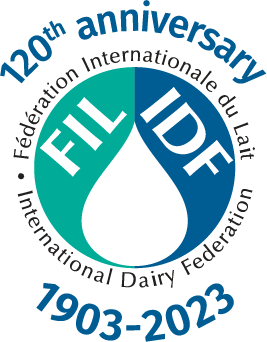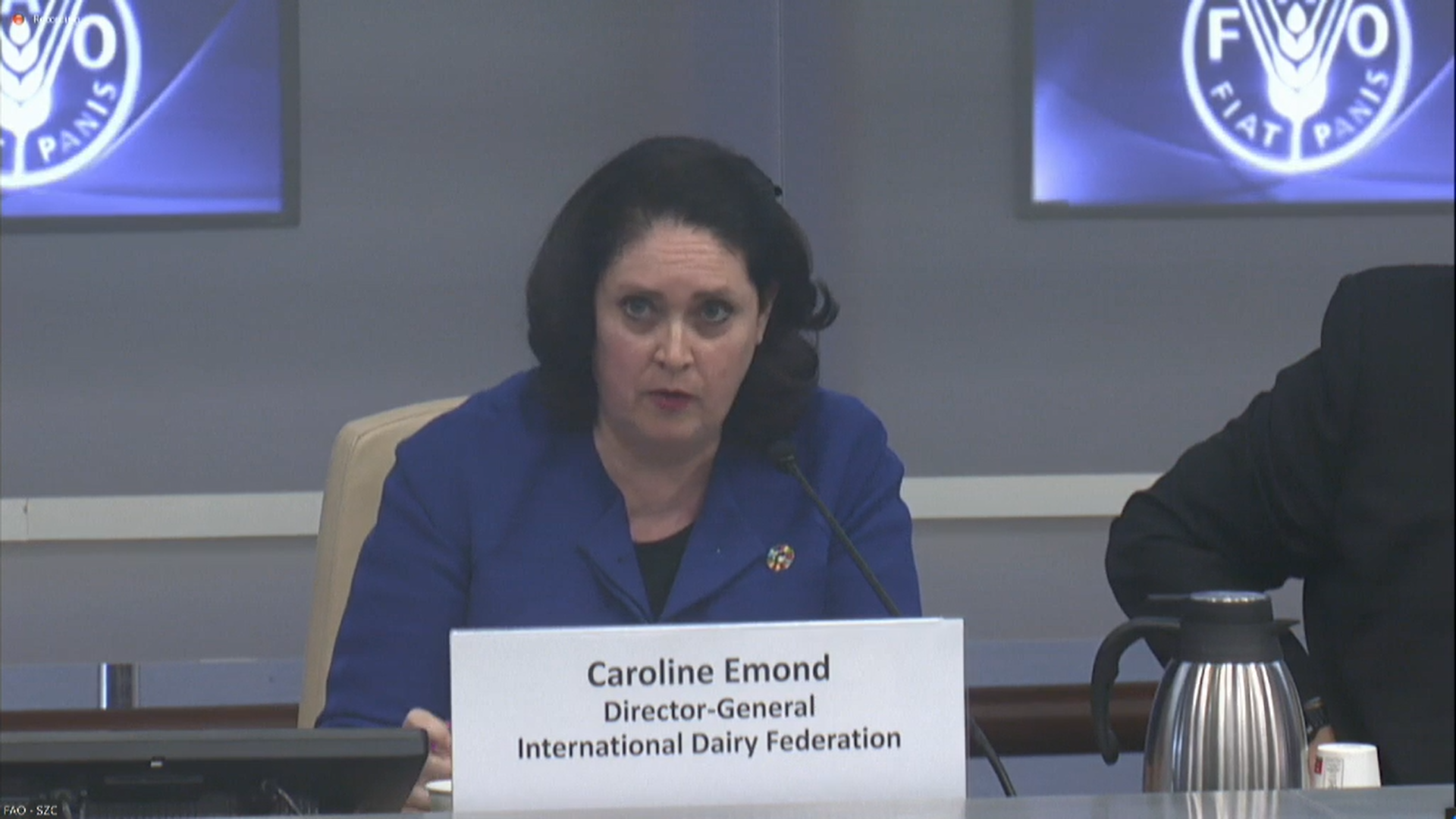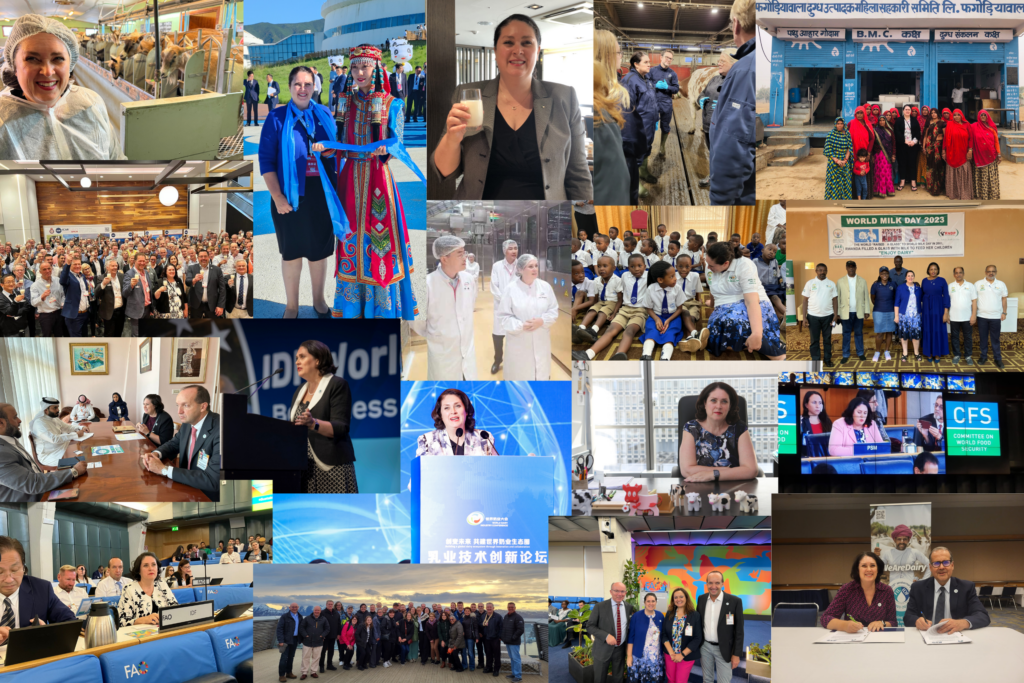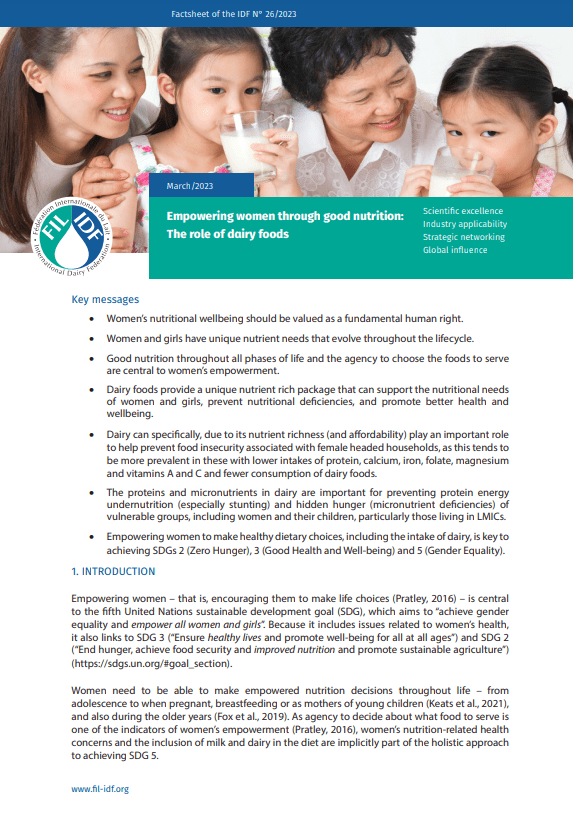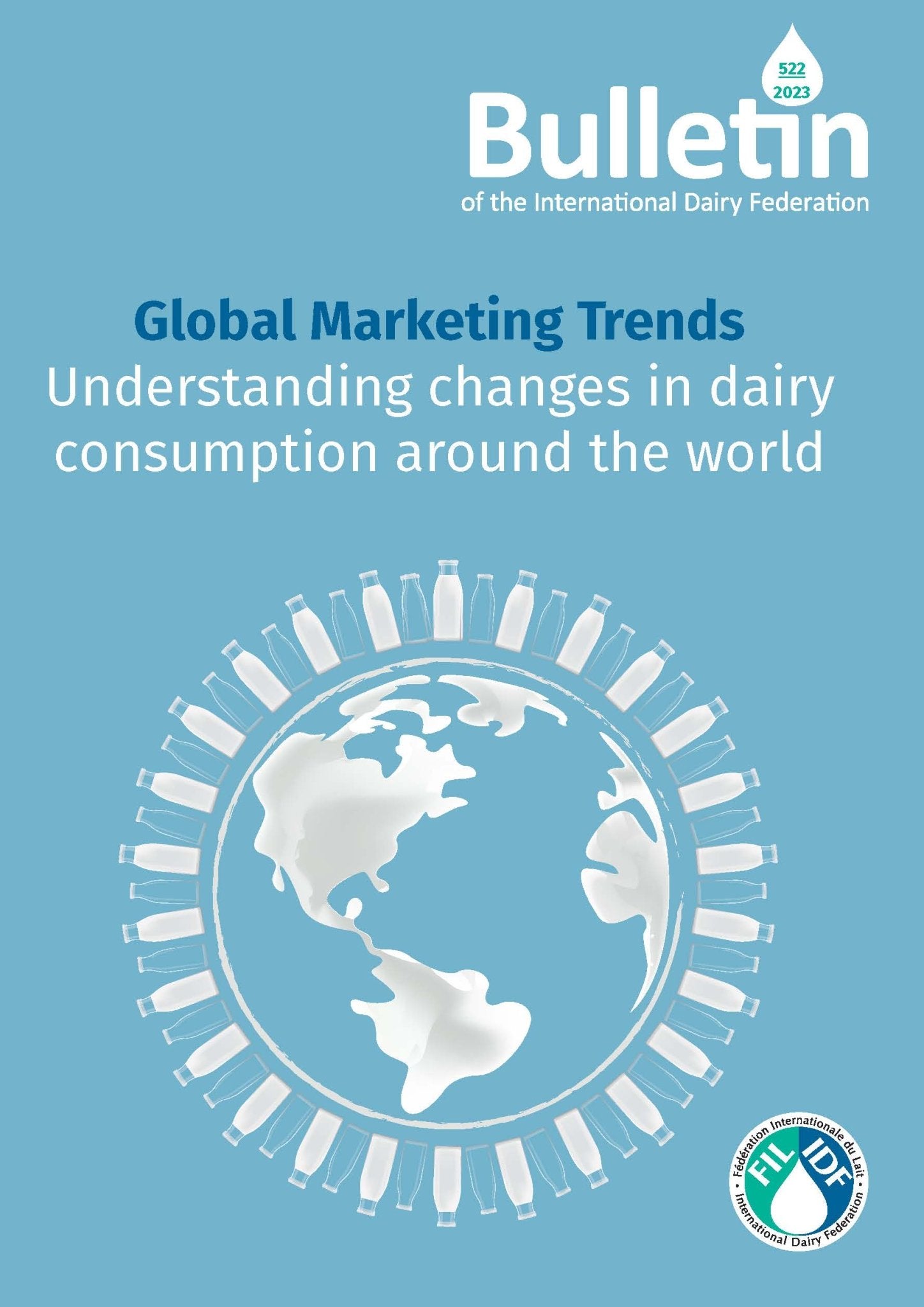On April 25, I had the privilege to join a prestigious panel at the FAO in Rome for the launch of the first scientific review of the document “Contribution of terrestrial animal source food to healthy diets for improved nutrition and health outcomes”, requested by the member countries of the Committee on Agriculture – Subcommittee on Livestock.
I shared the panel with the FAO Deputy Director Maria Helena Semedo, Her Excellency Ambassador Carla Barroso Carneiro from Brazil, the FAO Chief Economist Maximo Torero, the FAO Director of Animal Production and Health Division, Mr Thanawat Tiensin, the Director of the Department of Nutrition for Health at the World Health Organization, Dr Francesco Branca, and FAO Director Food and Nutrition Division, Dr Lynnette Neufeld.
On behalf of my colleagues from the global livestock associations (International Meat Secretariat, International Poultry Council and International Feed Industry Federation), and in the name of IDF, I commended the Secretariat of the Committee on Agriculture – Subcommittee on Livestock the publication of this important document since we are convinced that this comprehensive science and evidence-based assessment of the contribution of livestock to healthy diets for improved nutrition and health will make significant impacts on the global understanding of the benefits of animal foods.
In this regard, I expressed our satisfaction that the document clearly reaffirms livestock’s critical role in healthy diet, for the document reminds us of the important nutritional role of animal foods and the need to emphasize their unique contribution to food and nutrition security. I also took the opportunity to remind the participants that the global livestock associations have been strong supporters of the creation and work of the subcommittee on livestock, and thanked its Chair, Ambassador Cherniak from Argentina, for his leadership and collaborative approach.
This document is important because it provides strong references of the latest evidence of terrestrial animal source foods and their role in nutrition and health, particularly depending on factors as lifecycle (age), gender, diet and lifestyle context. We believe that it should be used for nutrition education and referenced when setting nutrition policies, critically important for developed and developing countries alike.
The sobering numbers that are shared through the State of food security and nutrition report of 2022 show that the world is not on track to reduce hunger, food insecurity and malnutrition in all its forms. Therefore, it is essential that nutritional adequacy and health is secured in priority by policy makers. Terrestrial animal source foods are essential to nourish the general population, and more importantly the vulnerable populations identified in the report.
Through its inherent nutrition composition animal sourced foods provide high quality proteins, as well as an area of nutrients. These foods are also highly palatable, and their diversity allows to be part of eating patterns globally.
During the session, I was given few minutes to explain how the dairy sector can contribute to ‘zero hunger’ (SDG2) and ‘sustainable consumption’ (SDG12) and improve human nutrition and health. Obviously, it was not possible to cover it all within the 5 minutes I was granted, so I focused on just a few points:
- The proteins and micronutrients contained in dairy are important for preventing protein energy undernutrition (especially stunting) and hidden hunger (micronutrient deficiencies) of vulnerable groups, including women and their offspring, particularly those living in Low- and Middle-Income Countries.
- In addition, more and more convincing evidence supports a positive role of dairy foods in preventing and managing diet-related non-communicable diseases (e.g., overweight/ obesity).
- Milk and dairy products are broadly recommended as part of healthy eating patterns. Based on FAO data, 94 countries (out of 95) include milk and dairy in their Food Based Dietary Guidelines. The key role of milk and dairy foods in human nutrition, health and development throughout life is generally attributed to their nutrient richness. Research clearly demonstrates the impact of the whole dairy food on health that extends beyond its individual components. These are the so-called dairy matrix health effects. I have invited the participants to register to IDF Symposium on Nutritional and Health on May 3 that will address that topic “Beyond nutrients: the health effects of whole foods”.
- Dairy plays a crucial role in contributing to zero hunger, particularly with children development and the nutritional empowerment of women.
- Over 160 million children around the world currently receive and benefit from school milk programmes. School Milk programmes have been recognised for over a century for their contribution to nutritional adequacy, health, and learning. School meal programmes are a significant safety net for children. As one of the primary means for children to have access to healthy meals, they help combat poverty and malnutrition. Their impact on education is seen in increased engagement from students. In countries that experience armed conflict and food insecurity, school meal programmes can also serve as an incentive for families to send their children, especially girls, to school, thus supporting female empowerment and children’s rights to education, nutrition, and well-being.
- The dairy sector understands the role that milk and dairy foods play in supporting the health of children worldwide and shares information through the IDF School Milk Knowledge Hub and School Milk Bulletin.
- Comprehensive maternal nutrition empowerment that includes the promotion of dairy intakes is core to achieving SGD 2, 3 and 5. Food-based approaches, such as food based dietary guidelines that include milk and milk-products are examples.
- This can improve the health of the pregnant and lactating woman and also of future generations. Teenaged girls, especially when pregnant or physically very active, are especially vulnerable and stand to gain from holistic empowerment initiatives. The older woman deserves this attention for reducing fractures and preventing loss of lean body mass.
I concluded my presentation with a call to action: aligning Food Based Dietary Guidelines with the latest evidence on healthy eating, and the wider social, economic, and environmental implications of dietary choices is an important starting point to enable policy coherence and creating a food environment that contributes to good public and personal health.
